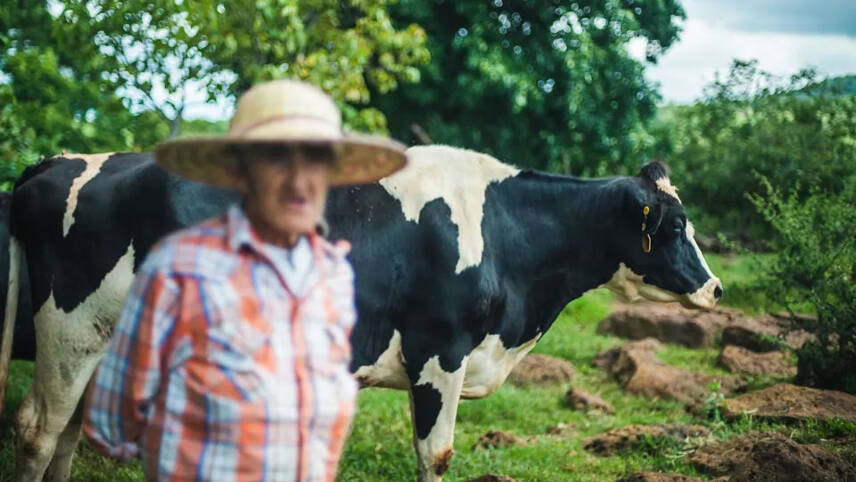Register for free and continue reading
Join our growing army of changemakers and get unlimited access to our premium content

Image: Danone
The Global Methane Hub’s Enteric Fermentation Research & Development Accelerator will invest in new technologies that can help mitigate methane resulting from the digestive process of livestock including cows.
It is set to support the scaling of feed additives and vaccines for livestock. A further key area of interest is modifying the genetics of the plants fed to animals, alongside breeding animals with a lower methane footprint.
The Accelerator will, additionally, support the uptake of methane measurement technologies for farmers. Some $200m for the Accelerator has already been raised through a mix of philanthropic, public and private finance.
Action on methane is increasingly being recognised as crucial to limiting the global temperature increase. Methane is an extremely potent greenhouse gas in terms of its global warming potential, with the International Energy Agency attributing almost one-third of the increase in global temperatures since the Industrial Revolution to the gas.
At present, food systems generate about as much methane globally as the energy system. Each system accounts for around 40% of global annual methane emissions. In food, the main culprit is cattle.
The Global Methane Hub’s chief executive Marcelo Mena said: “Agriculture is a sector where methane reduction efforts can have an extraordinary impact. 70% of agriculture-driven methane emissions come from enteric fermentation, making it the largest single source of methane emissions of any sector.
“Through scaled up investment from philanthropy, governments, and the private sector, we can accelerate progress in developing practical innovative solutions and create the scale and coordination needed for these solutions to be impactful, ensuring greater economic and food security for local communities and transform the future of sustainable farming.”
Initial collaboration
Danone is set to financially contribute to the Accelerator. It has not publicly disclosed its level of contribution.
Danone will also work with the Accelerator and its other participants to develop and implement a methane measurement system and a strategy for optimizing feed.
Implementation will take place, in the first instance, at smallholder dairy farms in Monaco. Around 1,000 farms will participate in the first instance.
Danone has told farmers that there will not be any negative impacts in terms of livestock productivity or farmer incomes. In fact, it foresees opportunities for positive outcomes in these fields.


Please login or Register to leave a comment.